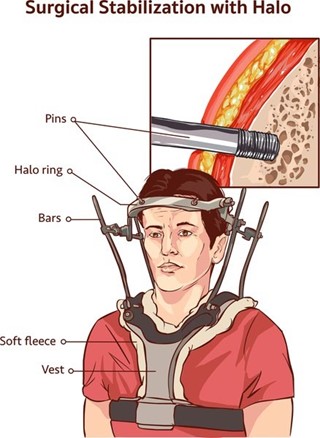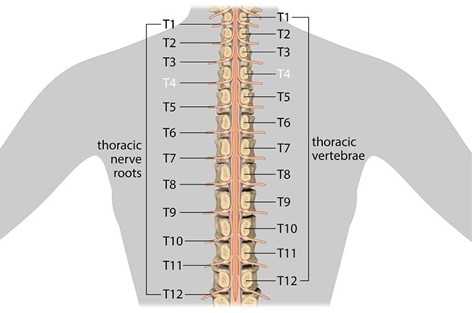A nurse is collecting data from a client who has a score of 8 using the Glasgow Coma Scale. Which of the following findings should the nurse expect?
The client requires total nursing care.
The client is in a deep coma.
The client is alert and oriented.
The client has a stable neurological status.
The Correct Answer is A
a. A GCS score of 8 indicates severe impairment, suggesting the client may be in a state where they cannot perform basic self-care activities and thus require total nursing care.
b. A GCS score of 8 indicates severe impairment but not necessarily a deep coma. Scores below 8 suggest a comatose state, but deep coma is more likely to be indicated by a score of 3-4.
c. A GCS score of 8 is not consistent with a client who is alert and oriented. This score indicates significant neurological impairment.
d. A GCS score of 8 does not indicate stable neurological status. It suggests severe impairment and potentially unstable or deteriorating neurological condition.
Nursing Test Bank
Naxlex Comprehensive Predictor Exams
Related Questions
Correct Answer is B
Explanation
Halo-vest traction immobilizes a patient’s head and neck after traumatic injury to the cervical vertebrae as well as helping to prevent further injury to the spinal cord². Elevating the head of the bed can help improve the patient's comfort and reduce the risk of complications such as aspiration.
a. Placing the client in a supine position is not necessarily required for a patient in halo traction. The position of the patient should be determined by their individual needs and comfort.
c. Applying a pelvic girdle is not necessary for a patient in halo traction. Halo-vest traction consists of a metal ring that fits over the patient’s head and metal bars that connect the ring to a plastic vest that distributes the weight of the entire apparatus around the chest².
d. Elevating the foot of the bed is not necessary for a patient in halo traction. The position of the bed
should be determined by the patient's individual needs and comfort.

Correct Answer is C
Explanation
To prevent autonomic dysreflexia, the nurse should take the intervention of preventing bladder distention. Autonomic dysreflexia is a serious medical problem that can happen if a person has injured the spinal cord in their upper back¹. It makes their blood pressure dangerously high and can lead to a stroke, seizure, or cardiac arrest¹. One way to lower the chance of complications is to use the bathroom on a regular schedule and keep the bladder and bowels from becoming too full.
a. Monitoring for elevated blood pressure is important but not an intervention to prevent autonomic dysreflexia.
b. Providing analgesia for headaches is important but not an intervention to prevent autonomic dysreflexia.
d. Elevating the client's head is important but not an intervention to prevent autonomic dysreflexia.

Whether you are a student looking to ace your exams or a practicing nurse seeking to enhance your expertise , our nursing education contents will empower you with the confidence and competence to make a difference in the lives of patients and become a respected leader in the healthcare field.
Visit Naxlex, invest in your future and unlock endless possibilities with our unparalleled nursing education contents today
Report Wrong Answer on the Current Question
Do you disagree with the answer? If yes, what is your expected answer? Explain.
Kindly be descriptive with the issue you are facing.
